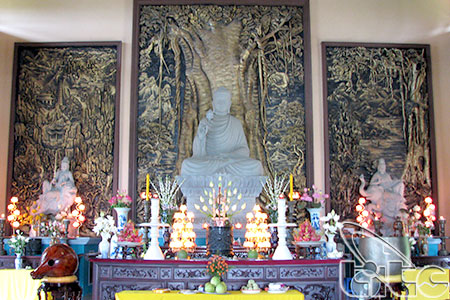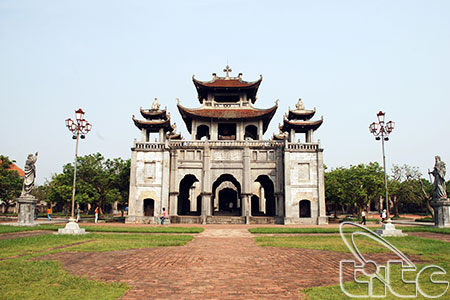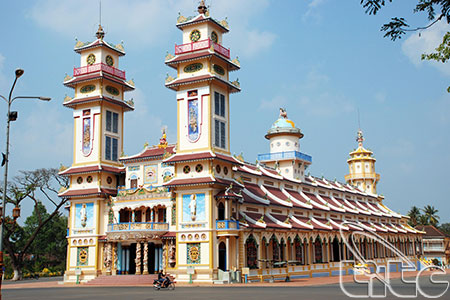The major religious traditions in Viet Nam are Buddhism (which fuses forms of Taoism and Confusianism), Christianity (Catholicism and Protestantism), Islam, Caodaism and the Hoa Hao sect.
Buddhism

Buddhism was first introduced to Viet Nam in the 2nd century, and reached its peak in the Ly dynasty (11th century). It was then regarded as the official religion dominating court affairs. Buddhism was preached broadly among the population and it enjoyed a profound influence on people's daily life. Its influence also left marks in various areas of traditional literature and architecture. As such, many pagodas and temples were built during this time.
At the end of the 14th century, Buddhism began to show signs of decline. The ideological influence of Buddhism, however, remained very strong in social and cultural life. Presenty, over 70 percent of the population of Viet Nam are either Buddhist or strongly influenced by Buddhist practices.
Catholicism

Catholicism was introduced to Viet Nam in the 17th century. At present the most densely-populated Catholic areas are Bui Chu-Phat Diem in the northern province of Ninh Binh and Ho Nai-Bien Hoa in Dong Nai Province to the South. About 10 percent of the population are considered Catholic.
Protestantism
Protestantism was introduced to Viet Nam at about the same time as Catholicism. Protestantism, however, remains an obscure religion. At present most Protestants live in the Central Highlands. There still remains a Protestant church on Hang Da Street in Ha Noi. The number of Protestants living in Viet Nam is estimated at 400,000.
Islam
Islamic followers in Viet Nam are primarily from the Cham ethnic minority group living in the central part of the central coast. The number of Islamic followers in Viet Nam totals about 50,000.
Caodaism

Caodaism was first introduced to the country in 1926. Settlements of the Cao Dai followers in South Viet Nam are located near the Church in Tay Ninh. The number of followers of this sect is estimated at 2 million.
Hoa Hao Sect
The Hoa Hao Sect was first introduced to Viet Nam in 1939. More than 1 million Vietnamese are followers of this sect. Most of them live in the south-west of Viet Nam.
Mother Worship (Tho Mau)

Researchers describe the Vietnamese mother-worship cult as a primitive religion. Mother, Me in the Vietnamese language, is pronounced Mau in Sino-script. The mother worship cult might be originated from the cult of the Goddess in ancient ages. In the Middle Ages, the Mother was worshipped in temples and palaces. Due to the fact that it is a worshipping custom and not a religion, the Mother worshipping cult has not been organised as Buddhism and Catholicism have. As a result, the different affiliations of the cult have yet to be consistent and different places still have different customs.
The custom of Mother worship originated from the north. In the south, the religion has integrated the local goddesses such as Thien Y A Na (Hue) and Linh Son (Tay Ninh).
In fact, the Mother worship cult was influenced by other religions, mainly Taoism.